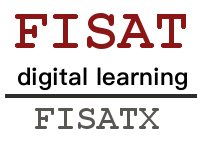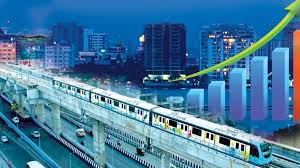ADVANCED CONCRETE TECHNOLOGY
Review of Materials for concrete making. chemical and physical processes of hydration , Properties
of fresh concrete - Mineral admixtures - Chemical Admixtures - Proportioning of concrete
mixtures. Properties of hardened concrete- Durability of concrete, Non-destructive testing of
concrete – special concretes
Module I : Aggregates: Review of types; sampling and testing; effects on
properties of concrete, production of artificial aggregates.
Cements: Review of types of cements, chemical composition;
properties and tests, chemical and physical process of hydration,Blended cements.
Module II:
Properties of fresh concrete - basics regarding fresh concrete –
mixing, workability, placement, consolidation, and curing,
segregation and bleeding
Chemical Admixtures: types and classification; actions and
interactions; usage; effects on properties of concrete.
Module III: Mineral Admixtures: Flyash, ground granulated blast furnace slag,
metakaolin, rice-husk ash and
silica fume; chemical composition; physical characteristics; effects
on properties of concrete; advantages and disadvantages.
Proportioning of concrete mixtures: Factors considered in the
design of mix . BIS Method, ACI method.
Module IV: Properties of hardened concrete: Strength- compressive tensile
and flexure - Elastic properties - Modulus of elasticity - Creepfactors affecting creep, effect of creep - shrinkage- factors affecting
shrinkage, plastic shrinkage, drying shrinkage, autogeneous
shrinkage, carbonation shrinkage
Module V: Durability of concrete: Durability concept; factors affecting,
reinforcement corrosion; fire resistance; frost damage; sulfate
attack; alkali silica reaction; concrete in sea water, statistical quality
control, acceptance criteria as per BIS code.
Non-destructive testing of concrete: Surface Hardness, Ultrasonic,
Penetration resistance, Pull-out test, chemical testing for chloride
and carbonation- core cutting - measuring reinforcement cover.
Module VI: Special concretes - Lightweight concrete- description of various
types -High strength concrete - Self compacting concrete -Roller
compacted concrete – Ready mixed concrete – Fibre reinforced
concrete - polymer concrete
Special processes and technology for particular types of
structure - Sprayed concrete; underwater concrete, mass concrete;
slip form construction, Prefabrication technology
Course Staff
Dr Kavitha P. E.
Dr. Kavitha P. E. completed her PhD on the topic “Soil Structure Interaction Analysis of Laterally Loaded Piles in Ship Berthing Structures” from Cochin University of Science and Technology. She did her BTech from Govt. Engg. College, Thrissur. She has completed two masters degrees; M.Tech in Computer Aided Structural Analysis and Design from Department of Ship Technology, CUSAT and MCA from Indira Gandhi National Open University. She is a life member of ISTE, ICI, IEI(I) and IGS. Dr. Kavitha started her career as an apprentice at Cochin Port Trust, W/Island. She was working at Sree Narayana Gurukulam College of Engineering, Kadayiruppu since 2006 and joined FISAT in September 2018. She has published more than twenty papers in national and international journals and conferences. Her areas of interest are structural analysis, structural design, concrete technology, computer programming and soil structure interaction analysis.
What web browser should I use?
The Open edX platform works best with current versions of Chrome, Edge, Firefox, Internet Explorer, or Safari.
See our list of supported browsers for the most up-to-date information.


